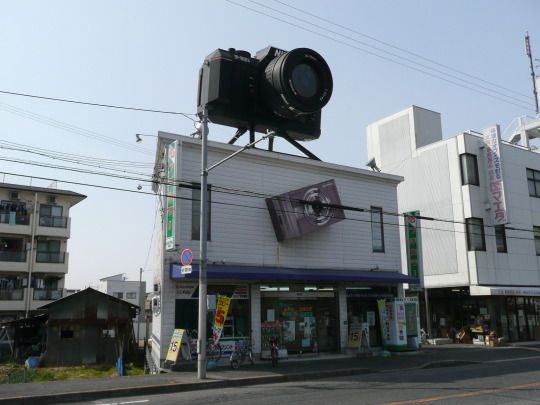#게
Text

copyrightⓒ 2023 All rights reserved by TheOnlyUniverse
단역일 뿐이라도
너의 이야기의 한 페이지가
될 수 있다는 게 기뻐.
#단역일#뿐이라도#너의#이야기의#한#페이지가#될#수#있다는#게#기뻐#단역#이야기#페이지#일기#추억#기억#일부#몽실#나나#단하나의우주#Extra#Story#Page#Diary#Memory#Part#mongsil#nana#TheOnlyUniverse
0 notes
Photo

출근길 수로에 게가 돌아왔다. 매년 이맘때쯤 기다려지는 녀석들... #계양천 #게#풍무동 #출근길 #crab (김포풍무동에서) https://www.instagram.com/p/CfSYSKYvzz0/?igshid=NGJjMDIxMWI=
0 notes
Text
A STEM게 (V)
[...·ge ...]
(making an adjective into an adverb) (to V) A-ly, (to V) in a A manner/style, A-ly (V-ing)
0 notes
Photo

신구:니들이 게맛을 알어?! @midmorningarchive 게, 바다 및 민물에사는 갑각류 생물로 두 집게를 이용해 방어수단으로 사용하고 있다; 네모바지 스폰지밥 시리즈의 집게사장이 이 생물을 기반으로 만들어졌다. . #게 #Crab #그림 #Drawing #낙서 #Doodle https://www.instagram.com/p/CeH_CZTpzsn/?igshid=NGJjMDIxMWI=
0 notes
Text







ATINYBLR REVIVAL :: DAY 1
FAVOURITE MV — 멋 (THE REAL) 흥 : 興 Ver.
#ateez#atinyrevival#flashing tw#ateezedit#atzsource#*teejeu#misc*teez#dawn.gif#im gonna try and participate in the revival!!! ill try to get all the sets ready this weekend bc i wont have time during the week ://#but yeah!!!! the real is such a comfort mv#i love all of their music videos they r all beautiful but the real always makes me soooo happy#i always always rewatch it when im down 🥺#이런 게 바로 멋입니다 🫶
180 notes
·
View notes
Text
⠀⠀⠀⠀⠀ ⠀⠀⠀୨୧ ⠀⠀⠀⠀⠀୨୧ ⠀⠀⠀⠀⠀୨୧




#⠀⠀ 사랑에 빠진 게 죄는 아니잖아 ♡ ୧ 。#⠀⠀ she / her ୨ ♡ ୧ pink only ౨ৎ#⠀⠀ username & mb reqs ૮꒰ྀི ´∩∩` ꒱ྀིა♡#wonyoung moodboard#jang wonyoung#wonyoung motivation#wonyoungism#jang wonyoung moodboard#wonyoung#wonyoungism moodboard#lana del rey#lana del ray aka lizzy grant#lizzy grant#lana del ray aesthetic#lana del rey unreleased#put me in a movie#coquette angel#coquette dollete#coquette moodboard#dollette moodboard#dollette#im just a girl#girlblogging#this is a girlblog#im just a girl ♡#lana unreleased#lana del rey aka lizzy grant#cinnamon girl#this is what makes us girls#female hysteria
18 notes
·
View notes
Note
What is the difference between -게 하다 and -게 되다?
Great question! First, we need to understand that 하다 is active whereas 되다 is passive! Your next question might be, “but omg, SK101, I’m not good at English grammar, too; what the hell is passive and active?”
Another great question!
The active voice is when the speaker/subject performs the action or is described directly–they did it, caused it, performed it; you’re gonna see people commonly use these ways to explain the active voice. In English, the active voice can look something like this:
I studied Korean; (저는) 한국��를 공부했어요
As you can see, I (the subject) am the one that studied Korean of my own volition. I caused the “Korean studying.”
The passive voice is when the speaker/subject does not perform/cause/do the action. Instead, the subject is affected by the action/performance. I understand this may be difficult to understand, so I’ll spend more time on this.
When can you use the passive voice?
When we have more interest in the object that experiences the action
When we don’t know (or don’t want to express) who performed the action (this is an academic loophole when we didn't do the proper research to support a claim)
When we want to emphasize the action!
The passive voice is not grammatically incorrect (take it from a linguist and someone who minored in creative writing). You will hear people say that the passive voice is not good or is ungrammatical (some bs like that). Even in Korean, the passive voice is entirely natural and used in everyday contexts.
The passive voice in Korean may look like this:
한국어가 (저에게) 공부됐어요; Korean was studied (by me)
The prepositional phrase “by me; 저에게” shows that we know who studied Korean. This may still be confusing, so let me give you another example:
부엌을 청소했어요; I cleaned the kitchen.
부엌이 청소됐어요; The kitchen has been cleaned.
Let’s add more context to the sentence to understand the situation better.
집에 도착했을 때 부엌을 청소했어요; When I got home, I cleaned the kitchen (meaning, I saw the dirty kitchen and cleaned it)
집에 도착했을 때 부엌이 청소됐어요; When I got home, the kitchen was cleaned (meaning, someone (unknown or otherwise) cleaned the kitchen when I was out)
*gasp!* Yes, by now, you've noticed that 이/가 goes with passive!
Now, onto your question: what's the difference between -게 하다 and -게 되다?
-게 하다: causative
The causative aspect shows that A causes B to happen. Pretend you have a younger sibling–here are some examples:
동생은 저를 늦게 했어요; My sibling made me late
저는 동생이 문제를 이해하게 했어요; I made them understand the problem
저를 귀찮게 했어요; You (the sibling) bothered me!
(저는) 동생을 화장품으로 예쁘게 했어요; I made my sibling pretty with makeup
A (동생/저) causes B to happen. B does not mean the recipient (저/동생) of the action – B represents the action.
-게 되다; to become (passive)
This grammar point shows that B changes A! Let’s use the examples from above.
동생이 화장품으로 예쁘게 됐어요; my sibling became pretty with makeup
동생 때문에 제가 귀찮게 되었어요; my sibling has been bothering me
문제가 동생에게 이해하게 되었어요; my sibling came to understand the problem [more literally; the problem was understood by my sibling]
동생 때문에 제가 늦게 되었어요; I became late because of my sibling
Now, I'm sure you've noticed that there are two spellings of a conjugated '되다'. The only difference between '되었어요' and '됐어요' is that '됐어요' is a contraction of '되었어요'. You may have other Korean learners attempt to tell you that you write one [되었어요] and speak the other [됐어요]. This isn't not true; it's just not a rule written in stone. You are very much able to write the contracted '됐어요' instead of the regular '되었어요'. In fact, native Korean speakers do this all the time. It would be like saying we shouldn't write any English contractions because it's not grammatically correct--it's just wrong. The rules of '되다' are more complex than just written and spoken, but that's a blog for another day.
I hope this helped answer your question! If you're still confused, don't hesitate to send me another ask or pm me! I'm always open to clearing up any confusion or directing you to a source that may help!
Happy Learning :)
~ SK101
#korean blog#korean#korean language#learn korean#study korean#korean langblr#한국어#한국어 배우기#korean language blog#langblr#kblr#korean langauge#south korean#한국어 공부하기#한국어 문법#한국어공부#korean words#studyblr#-게 되다하고 -게 하다 차이#한국어 동사#문법#ask#물어보기 아논#물어보는 질문#질문#한국어 질문
197 notes
·
View notes
Text

Korean Adverbs: -게, -이, -히, 으로
⚠️(this is a long post)
WHAT ARE ADVERBS?
Adverbs can modify verbs, adjectives, and sometimes other adverbs. They are used In a ton of different ways to Indicate : Place, Time, Manner, Circumstance, Degree, Cause, Etc. (Examples: Gently, Very, Then, There)
Korean grammar has 4 types of adverbs that you may have saw attached to words in a sentence. ~이, ~게, ~으로, & Plain Word. Most of these attach to them stem of a verb or adjective to create a new meaning.
BASIC ADVERBS:
It’s the easiest one to understand but you have to memorize these. Other adverbs basic form uses a stem but this type doesn’t. It exists as an adverb from the beginning. There is no rule for them. You just need to memorize them one by one.
List Of Some Basic Adverbs: (more at end of post)
매우/아주 - Very / A lot
정말/진짜 - Really
조금 - Little / Few
금방 - Just Now
Time & Place Adverbs:
The best part about Korean adverbs that relate to times and places, is that they can essentially be placed at any place in the sentence. The only place they cannot be placed is at the end of the sentence – because a sentence must always end in an adjective or verb.
Examples Of Time & Place Adverbs:
지금 - Now (time)
여기에 - Here (place)
가끔 - Sometimes (time)
저기에 - Over There (place)
매일 - Everyday (time)
Any location + 에 Is technically an Adverb
Degree & Manner Adverbs: 게
Adverbs that indicate a degree to which something is done are typically placed immediately before the verb. These adverbs usually (but not always) end in ‘ly’ in English:
I ran *really quickly*
I ate *fast*
I left *immediately*
I *often* meet my friend on Thursday
I eat too much *sometimes*
Also, many of these words are just transferred from their adjective forms to create an adverb by adding -게. 게 Is typically known as something that shows in what manner something is done. A lot of adverbs in Korean are simply made by adding ‘게’ to the stem of an adjective.
You just need to replace 다 of word stems to 게:
쉽다 = Easy > 쉽게 = Easily
다르다 = Different > 다르게 = Differently
빠르다 = Quick > 빠르게 = Quickly
히 & 이 Adverbs:
Adjectives that end in 하다 are sometimes changed into adverbs by changing 하다 to 히. With most adjectives you can either add 게 to the stem or 히 with no difference in meaning. When you learn new verbs, you can use them right away as an adverb. 하 in 하다 becomes 히 by combining 이. If the word stem has ㄹ, then it usually becomes 리.
Examples:
조용하다 = Quiet > 조용하게/조용히 = Quietly
안전하다 = Safe > 안전하게/안전히 = Safely
Some adjectives are changed into adverbs in a different way. When this happens, they are usually very similar to their original adjective form:
많다 = Many > 많이 > Many/ A lot
빠르다 = Quick > 빨리 > Quickly
EXCEPTIONS:
Some adverbs don’t have a basic form. So it exists as an adverb from the first place even it looks like other adverbs using a word stem.
Ex: 천천히 - Slowly
Some word stems can’t be used with -게 and some can’t be used with -히.** There is no rules for them. You just need to memorize them.
-(으)로 ADVERBS:
으로 means ‘in some way’. Actually it’s a postposition,** not an adverb but it becomes an adverb when you translate Korean into English. Most of the stems for 으로 adverbs use the suffix 적 (적으로), but you’ll see some that don’t use it.
LIST OF COMMON KOREAN ADVERBS:
보통 - usually
계속 - contiunously
자주 - often, frequently
가끔 / 때로는 - sometimes
항상 - always
때때로 / 종종 - occasionally
드물게 - rarely
절대 - never
제대로 - properly
아주/매우 - very
거의 - almost
잘 - well
더 - more
덜 - less
특히 - specially, especially
가장 - most
완전히 - perfectly
엄청 - enormous
단순히 - simply
가만히 - motionlessly (still)
다행히 - luckily, with luck
안녕히 - in peace (안녕히 가세요/계세요)
열심히 - diligently, hard
꾸준히 - steadily, persistently
영원히 - eternally, forever
똑같이 - equally, evenly
없이 - without
끝없이 - without end
틀림없이 - sure enough (absolutely correct)
언제 - when
지금 - now (time)
이제 - now
그때는 - at that time, back then
아직 - yet, still
언젠가 - some time
곧 - soon
어디 - where
어떻게 - how
누가 - who
뭐 - what
왜 - why
어느 - which
얼마나 - how much
몇이나 - how many
가볍게 - lightly
무례하게 - rudely
나쁘게 - badly
맛있게 - deliciously
이쁘게 - prettily
아름답게 - beautifully
안전하게 - safely
용기있게 - bravely
조용하게/조용히 - quietly
위험하게 - dangerously
자연스럽게 - naturally
재미있게 - funny
행복하게 - happily
편하게/편히 - comfortably
A Few Example Sentences:
저는 조용하게 먹었어요.
I ate quietly.
저는 가끔 너무 많이 먹어요.
I eat too much sometimes.
저는 저의 친구를 자주 만나요
= I meet my friend often
저는 행복하게 살았어요.
I lived happily.
**과학적으로** 해결해보세요
Solve it scientifically
**무의식적으로** 버튼을 눌렀어요
I pressed the button unconsciously
**본능적으로** 움직였어요
I moved my body instinctively
That's it for this post! Hope you enjoyed and learned something new. Follow for more lessons like this👍
30 notes
·
View notes
Text
i keep writing crab instead of dog 💀
13 notes
·
View notes
Note
srsly what are the don quixote haters on i shake my ASS to that song and not just to support my mans 😤
do ppl actually hate don quixote now that it's out???? before the teaser everyone was speculating that it would be boring but now that it's out wtf do ppl just hate good music?
11 notes
·
View notes
Photo

틀린 게 아니라
다른 것일 뿐이에요.
0 notes
Text


NFRJTJFKGODORKRKR
8 notes
·
View notes
Text
V1 STEM(으)ㄴ 것(이/을/은) V2 • V1 STEM는 것(이/을/은) V2 • V1 STEM(으)ㄹ 것(이/을/은) V2
[...(·eu)n geos·(hi/eul/eun) ...] • [...·neun geos·(hi/eul/eun) ...] • [...(·eu)·l geos·(hi/eul/eun) ...]
(gerund; using a verb as a noun) V2 V1-ing (i.e. love dancing) · (commenting an action) the act of V1-ing ... V2 ...
• (past tense) V1 STEM(으)ㄴ 것(이/을/은) V2
• (present tense) V1 STEM는 것(이/을/은/을) V2
• (future tense) V1 STEM(으)ㄹ 것(이/을/은) V2
게 [ge]/거 [geo] (informal) are short forms for 것이 [geosh·i]
걸 [geol] (informal) is the short form for 것을 [geos·eul]
건 [geon] (informal) is the short form for 것은 [geos·eun]
🔗 Irregular Patterns with 으
#grammar: gerund#grammar: all#grammar: particles#ㄴ것#는 것#ㄹ 것#은 것#을 것#geot#geos#ing#grammar: verb to noun#걸#건#게#거#geol#geon#ge#geo#geoshi#geoseul
1 note
·
View note
Text


🥀 𝕿𝖔 𝕿𝖆𝖐𝖊 𝖆 𝕸𝖊𝖗𝖒𝖆𝖎𝖉'𝖘 𝕳𝖊𝖆𝖗𝖙
#manhwa recommendation#manhwa#webtoon#webtoon recommendation#ridibooks#tapas#tappytoon#kakaopage#lezhin#bomtoon#manta comics#pocket comics#naver#webcomic#To Take a Mermaid's Heart#Is It My Heart That You Want?#당신이 원하는 게 제 심장인가요#regression#mermaid#time travel#historical#shoujo#drama#romance
3 notes
·
View notes
Text
CAUSE ITS YOUUU
1 note
·
View note

